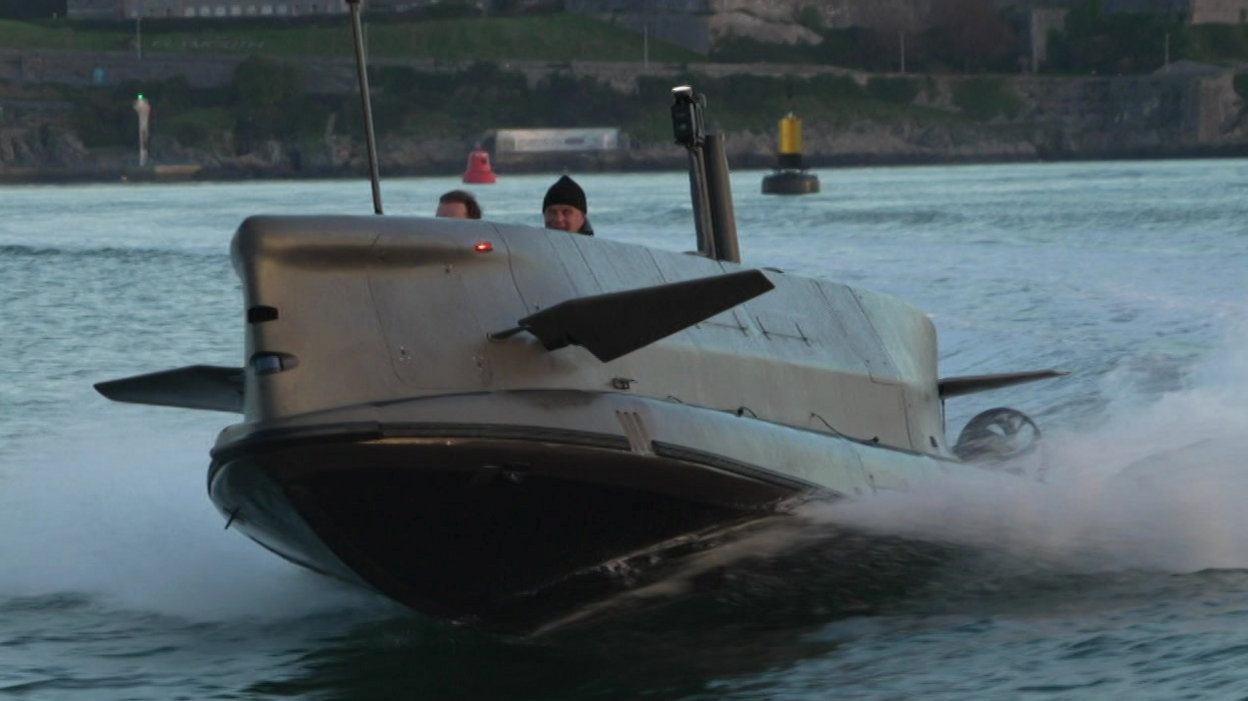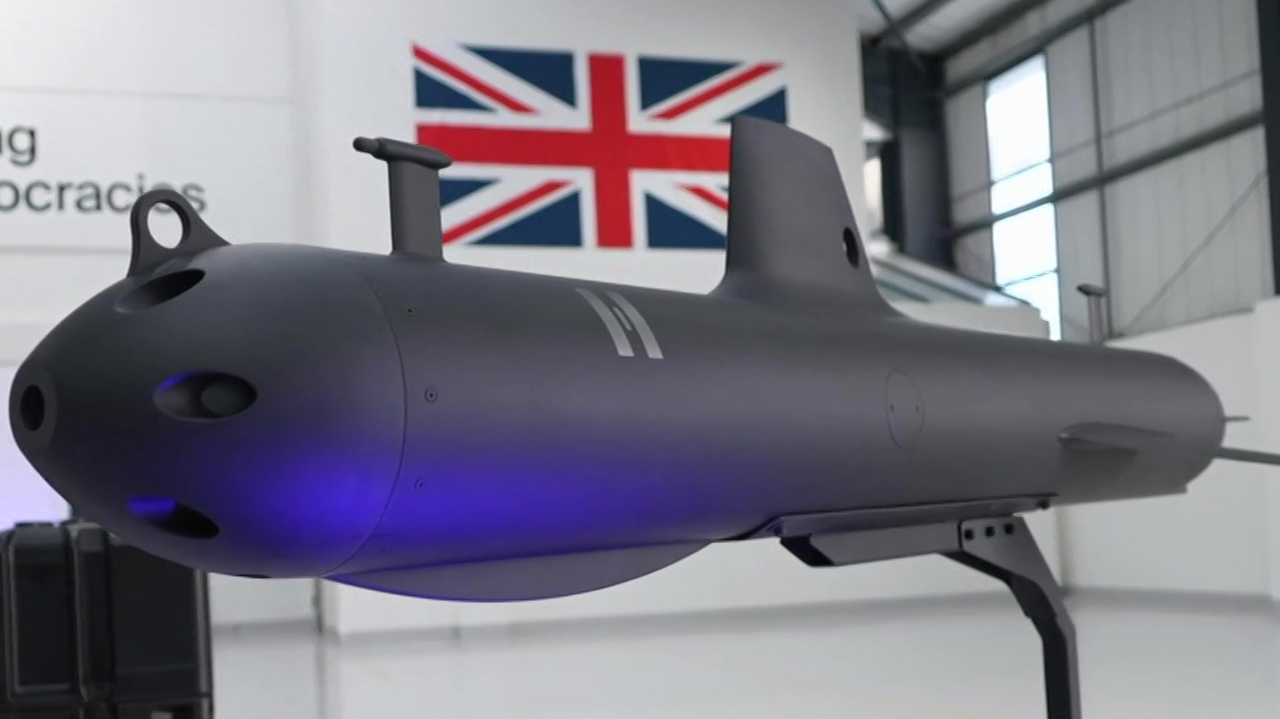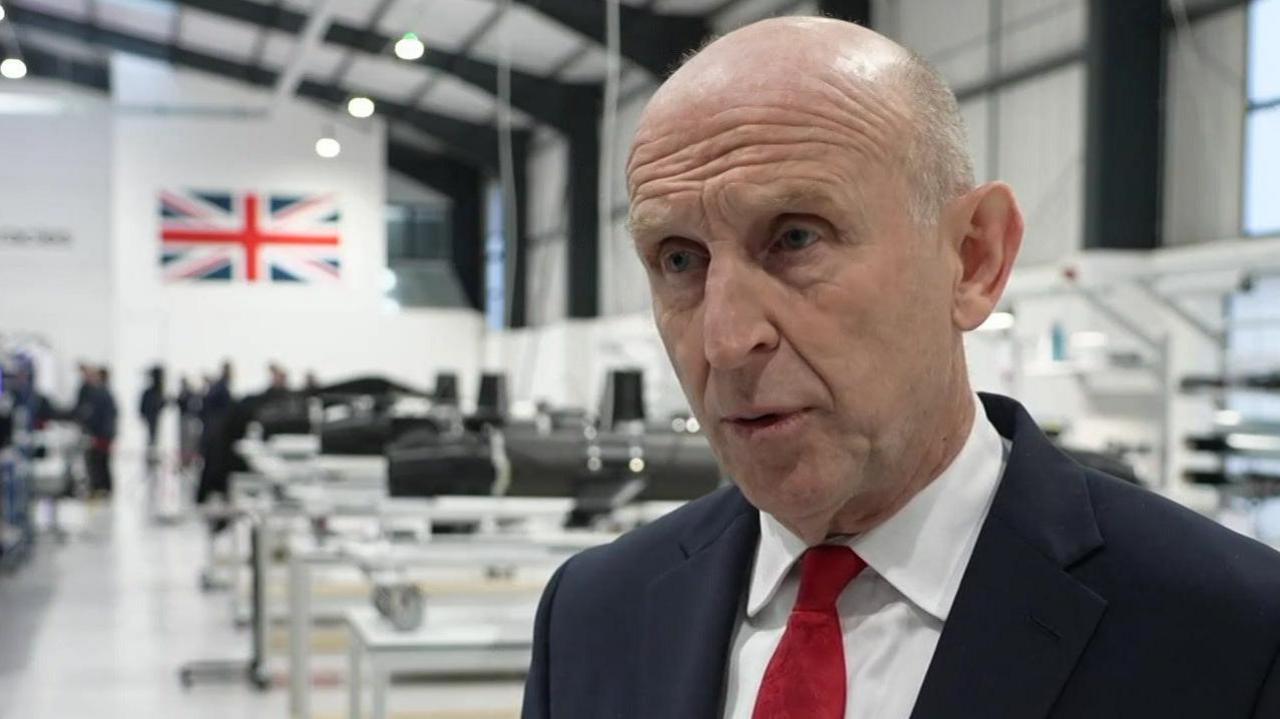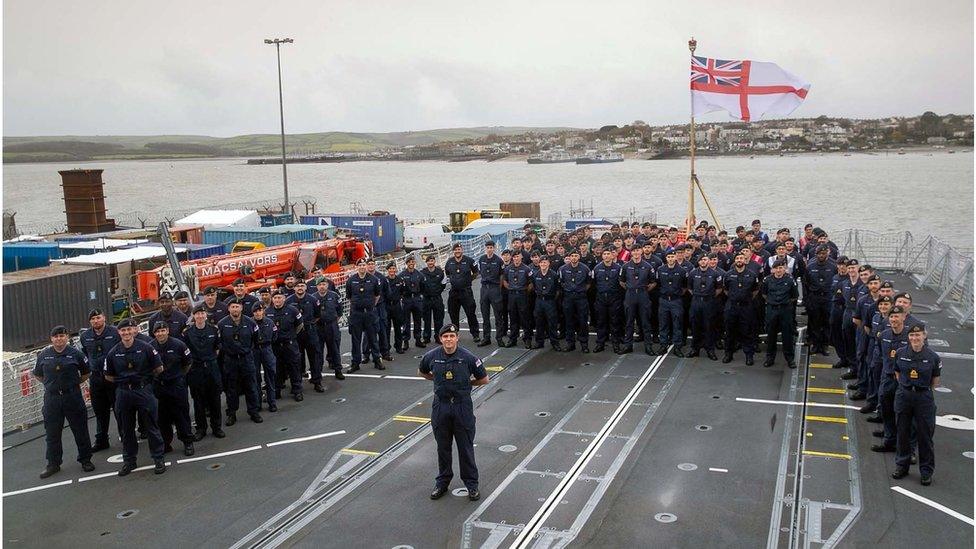Marine autonomy surge sparks expansion plans

James Fisher Defence showcased its tactical diving vehicle
- Published
A city's marine autonomy sector is growing so fast it is running out of waterfront space, companies say.
Six months after Plymouth was named the UK's National Centre for Marine Autonomy, businesses are flocking to the area and pushing the limits of its original hub at Turnchapel Wharf.
James Fisher Defence has revealed plans to expand operations and is considering opening a manufacturing facility in Plymouth.
The company showcased its tactical diving vehicle at a Land, Sea and Air conference, with local MP and former Royal Marine, Fred Thomas, on board the craft which can hit 30 knots (34mph) on the surface and dive for covert missions.

Helsing is producing an unmanned submarine glider in Plymouth
Thomas said: "It's absolutely awesome. One of so many amazing companies who have got the most world-leading technologies coming to Plymouth."
Matt Harmon, head of product development at James Fisher Defence, said the city was the obvious choice for growth.
"We're looking at Plymouth as not only a potential manufacturing site but also as this huge incubation piece for maritime technology," he said.
"So the autonomous centre that we've got here and just rubbing shoulders with all these companies that we have here has been awesome."
The announcement comes just days after German defence tech firm Helsing opened a factory on the city's outskirts, creating 50 jobs producing unmanned submarine gliders.
Helsing has also launched a test facility at Turnchapel Wharf.
Start-up, Oshen, which employs 10 people, has seen demand soar for its C-Star autonomous sailboats after successful trials during hurricane season in the Caribbean.
CEO Anahita Laverack said the company wanted to expand, but space was already tight.
Turnchapel Wharf director Ryan Bonney said they were working on a plan to cope with the surge.
The sector has been helped by Plymouth's share of the government's £250m Defence Growth Deal, plus, at the side of the city, a £4.4bn investment into Devonport over the next decade.
Follow BBC Devon on X, external, Facebook, external and Instagram, external. Send your story ideas to spotlight@bbc.co.uk, external.
- Published20 November

- Published3 June

- Published4 December 2023
